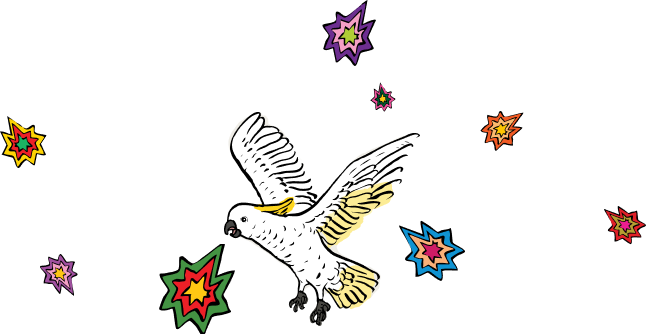Reviewed by: That Guy in The Foyer
“Persephone”
Presented by Iran Saye Theatre & The Garage International
Directed by Mehdi Mashhour
The Garage International @ Adelaide Town Hall
Review by That Guy in The Foyer, John Doherty
★★★★
Friday 15th March at 7:20 pm, Sunday 17th March at 4:40 pm
The South Australian premier of Iran Saye Theatre’s “Persephone” is challenging - and remarkable!
The Ancient Greek myth revolves around the kidnapping and marriage of Persephone, daughter of the goddess of the harvest Demeter, to God of the Underworld, Hades. Demeter’s grief affected the crops across Greece and her appeal to Zeus result in the King of the Gods intervening to arrive at a compromise of sorts with Hades. As with many Ancient Greek myths, the forces of darkness are as cunning as their stella counterparts, so the arrangement results in Persephone spending six months on Earth with her mother- an annual reunion- the other six in Hades.
A powerful example of experimental theatre in which contemporary dance and physical theatre play significant roles, “Persephone” opens with Demeter (Sajie Ashouri) and her daughter (Fahimeh Hurmozi) having set up camp at the foot of the mountain with the intention to scale it the following day. The white inner skin and frame of a tent sits opposite the pair engaged in an intense conversation in Persian. An engagingly humorous moment involving the pair enveloped in a white sheath of fabric breaks the tension and the motif of rebirth is introduced when the covering appears to become a vagina. A consistent image throughout, the tent and performers’ bodies are used to profound effect to reinforce this primal symbol of birth and growth.
Upon awakening, Demeter kills her body, ascends, and attempts to awaken Persephone, who is dead. Demeter goes in search of her daughter in the world of the dead. But Persephone has risen and proceeds to tell the story of she and her mother. We find our world in parallel to a cycle of death, disappearance, and rebirth which my later reading discovered represents one of the hundreds of protesting girls who fought for their human rights in Iran only to be killed by the authorities. As with the mothers of Iran, Demeter’s efforts to find her daughter are fruitless, but Persephone decides to return to the world of the living so that they can meet again.
In English, Persephone tells us of the stages of the cycles she and her mother endure, and Ashouri and Hurmozi use appealing hand puppets, speaking in Arabic, in a surprisingly effective way to draw us into the emotional world of the piece. Demeter sings a lament in Turkish, and it becomes clear that she has changed as have the Iranian mothers of lost daughters.
Under Mehdi Mashhour’s tight direction, Ashouri and Hurmozi are mesmerizing. Exquisitely choreographed, highly emotive movement and powerful delivery of the sparse dialogue simply heighten the gravitas of the myth symbolizing death and the regeneration of life and its immediate relevance.
Yes, "Persephone" is intense, but once we accept mythology conveys something essential deeply embedded in a culture, that its conventions defy realism, we find a profound and relevant message about the triumph of the human spirit.
To my mind, “Persephone” is what “Fringe” implies; it is not mere entertainment, nor a cathartic biographical narrative but a piece of experimental theatre with broader implications provoking a powerful experience.
Why, I must ask, are there only three performances scheduled of such a compelling show over the last few days of The Fringe?!?! This simply makes no sense!
“Persephone” will not be everyone’s “thing,” but it is well worth experiencing.
Go! See it!




